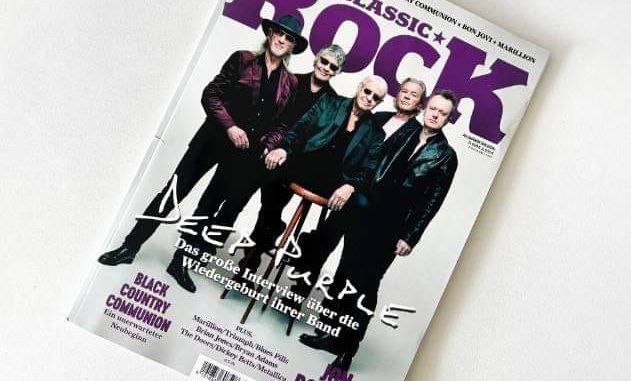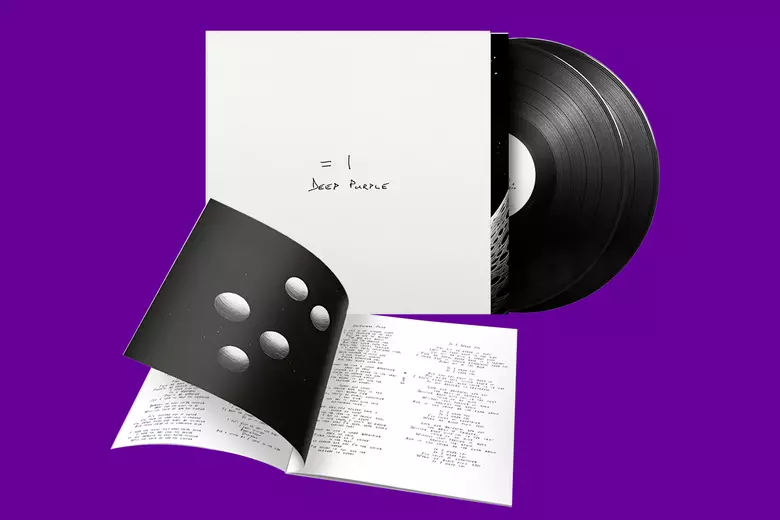
UNBELIEVABLE: Deep Purple Has refuse signing a Multi-million dollar deal as…
For Deep Purple’s Roger Glover, Everything Equals 1
In the pursuance of music journalism, it’s not often that the subject of a scheduled interview tells you right off the bat to bugger off. But that’s what happens when Roger Glover, bassist for Classic Rock royalty Deep Purple, appears on computer screen via Zoom.
“I haven’t got time to talk to you, Bob. I’m reading!” he says, dramatically unwrapping what looks to be a CD copy of the band’s new studio album =1, out on July 19 from earMUSIC. “I’m actually seeing the album for the first time right now. I’m so privileged!”
Glover is, of course, joking. But he’s got every right to be jazzed about the release and the solid new music it contains from him, vocalist Ian Gillan, drummer Ian Paice, keyboardist Don Airey, and—making is recorded debut with the storied group—brand new guitarist Simon McBride.
“What that equation in the title means is up to the listener. To me, it sums up our entire career,” he says. “We’ve had such a soap opera with comings and goings and break ups and leavings and sackings.”
“But more than that, he recognized things in us that we didn’t ourselves. When he first saw us in Toronto 12 years ago, what struck him was the musicality and the spontaneity of Deep Purple. We don’t learn solos to play them, they’re fresh every night. And that’s what got him.”
For comparison, Glover says the band’s 1987 effort The House of Blue Light, which the band produced themselves, took six months to record. For =1, he estimates that they laid down the basic backing tracks for 15 songs in 11 days.
“When you write lyrics, the world seeps in. You can’t ignore it. And the world around is pretty dire at the moment. But then again maybe it’s always been dire,” Glover offers.
“Conversations, memories, newspapers, we [use] it all But no one person in the band speaks for the band. That wouldn’t work for us, it would probably break us up. We stay away from politics or preaching, unless it’s an overall observation.”

“It takes the five of us to write everything. Nobody comes to a Purple session with a completed song. When I joined Purple, they were mostly known for doing covers. Then we started writing our own. It’s a whole feel. The way the drums are played are as much part of the writing as a riff or a word. And we always decided to share credits,” he says.
“When Ian [Gillan] and I left the band in ’73 and [David] Coverdale and [Glenn] Hughes came in, Ritchie changed that. He said ‘No, he who writes gets.’ Because in his mind, he was writing most of the stuff. Now, it’s a guitar-based band, so a lot of the stuff came from him. But not all of it.”
After Blackmore left the reunited and best-known “Mark II” lineup in 1993, Glover said they decided to go back to more collaborative credits (for those keeping count, the current lineup is “Mark IX”).
Glover admits to going through a rough patch after that contentious ’73 departure. “I was pretty depressed, blown apart actually. This wonderful dream I had just lived for four years of going from nothing to owning the world suddenly stopped. And it was difficult to take,” he says.
But his spirits—and professional resume—were buoyed by the sudden success of a little-known Scottish hard rock band whose third record he produced: Nazareth.
Glover stuck mostly to producing for several years until joining Blackmore’s “other” band, Rainbow. Then their paths led back to Deep Purple.
With some creative math, the current tour marks “50 Years of ‘Smoke on the Water.’” And the album that birthed it, 1972’s Machine Head, was recently reissued in a Super Deluxe Edition.
Amazingly, its tale about a mobile recording unit, a floating Swiss casino burnt to the ground with a flare, and a cameo from Frank Zappa and the Mothers of Invention is a true story. More amazing was that this epochal piece of rock and roll history was never meant to be issued as a single. And its success was a shock to the band itself.
Leave a Reply